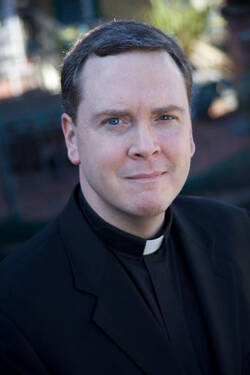This spring marks the 11th anniversary of my association with America, first as a Jesuit novice, then a regent, and lately as the 14th editor in chief. You might think that after all that time, I’d have learned pretty much all there is to know about America’s storied history and its spectacular, even eccentric cast of characters. On the other hand, there’s quite a bit of history to know: We’ve been publishing this magazine for 106 years and counting, through several papacies, an ecumenical council, a half-dozen wars, unimaginable triumphs and unspeakable tragedies. So it’s no surprise, really, that I still learn something new almost every day.
On a recent road trip I did what I usually do to pass the time: I synched my iPhone to the car radio, turned up the volume and spent three glorious hours listening to Frank Sinatra. I’m a big Sinatra fan, as I have been for most of my life. I’m probably one of the few people under the age of 60 who is magically transported back to his childhood when he hears “Angel Eyes” or “Night and Day.” Well, I was talking about this one day in the office when Brother Frank Turnbull casually mentioned that I’m not the first editor in chief to take Sinatra with him on a long car ride. My predecessor twice-removed, George W. Hunt, S.J., also liked to travel with the Chairman of the Board and once wrote about that fact in this very column. A curious coincidence to be sure, but the real gem in this story is this: It turns out that Mr. Sinatra was an America reader, and when he read Father Hunt’s glowing column about his music, he wrote a letter to the editor, which George printed in the next issue with what we can only assume was unbridled glee.
Though it was a surprise to learn that Mr. Sinatra was a reader, it was no surprise to learn that Sinatra’s music was just one more strand in the rich, eclectic tapestry of literary and musical tastes of Father George Hunt. As his friend Fay Vincent, former commissioner of Major League Baseball, once remarked, “George demonstrated to me that he knew more than just about anyone alive about football and baseball, jazz, the movies, modern fiction—especially John Cheever and John Updike—the Civil War, political history, Winston Churchill, Irish history, Tammany Hall and Boss Tweed, military history—especially World War II—and the list could go on and on.”
It’s no accident then that when we launched the literary prize that bears Father Hunt’s name, we decided that it should be awarded to someone with an unusual mix of interests; someone who uses art, literature and culture to reach people in new ways. I am pleased to report that we have found that person. The 2015 and inaugural winner of the George W. Hunt, S.J., Prize for Excellence in Journalism, Arts and Letters is Philip J. Metres III. A poet and essayist, Professor Metres’s writing—which has appeared widely, including in Best American Poetry—has been called “beautiful, powerful, magnetically original.”
A graduate of Holy Cross, Dr. Metres is today a professor of English at John Carroll University in Cleveland. When I reached him to inform him that he had won the Hunt Prize, he was in Belfast, Northern Ireland, where he was leading a group of John Carroll students on a faith and reconciliation trip. George would have liked that: a poet at the intersection of the church and the world helping the next generation to find its way. He also would have liked that we found the best of the lot, for Father Hunt had exacting standards. As Mr. Sinatra might have put it, for George, when it came to excellence, it was “all or nothing at all.”








